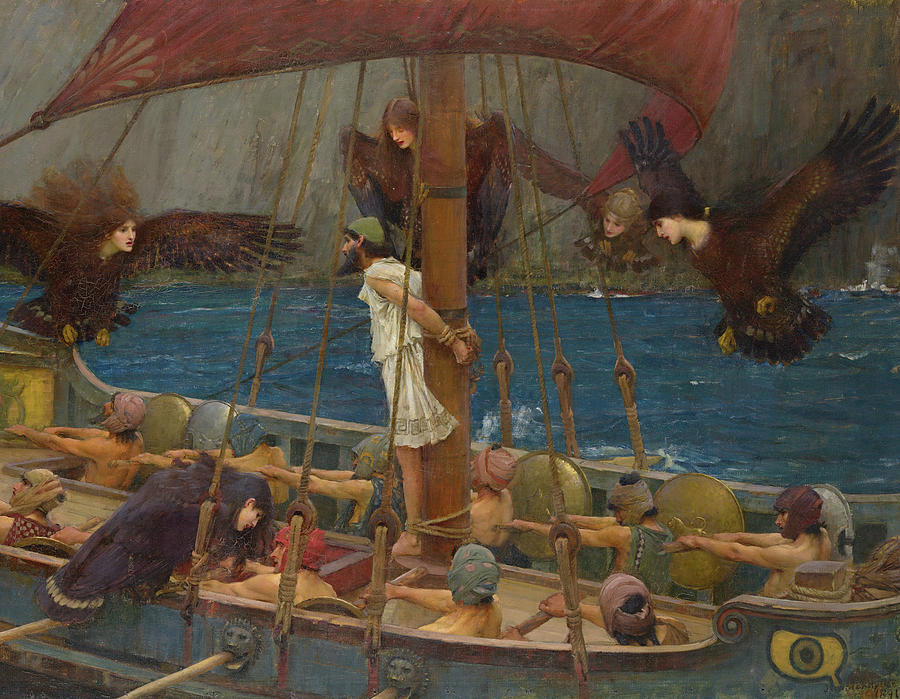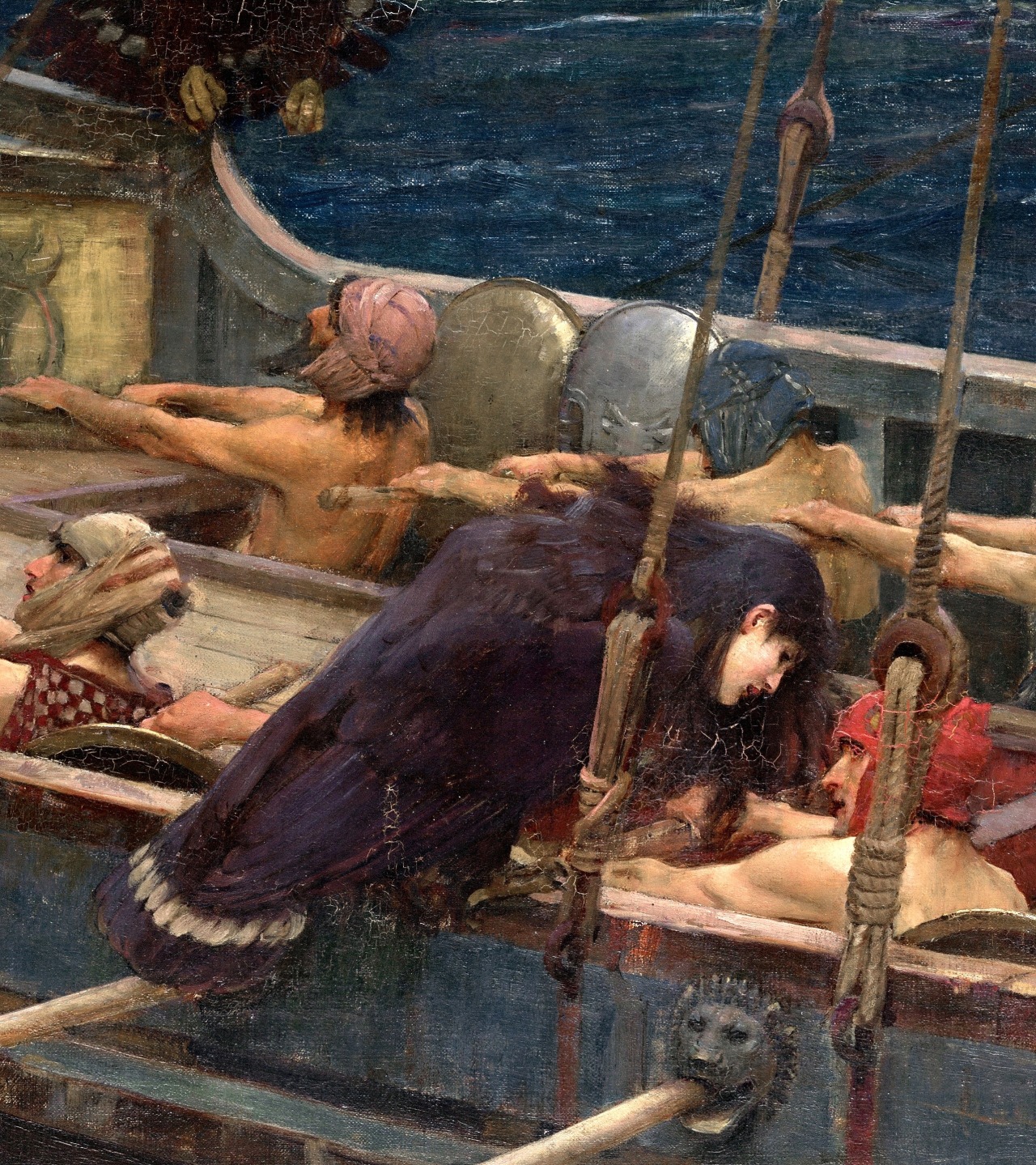

(See Samuel Butler’s translation of The Odyssey, Book XII, online via MIT.) If you beg and pray the men to unloose you, then they must bind you faster. Therefore pass these Sirens by, and stop your men's ears with wax that none of them may hear but if you like you can listen yourself, for you may get the men to bind you as you stand upright on a cross-piece half way up the mast, and they must lash the rope's ends to the mast itself, that you may have the pleasure of listening. There is a great heap of dead men's bones lying all around, with the flesh still rotting off them. If any one unwarily draws in too close and hears the singing of the Sirens, his wife and children will never welcome him home again, for they sit in a green field and warble him to death with the sweetness of their song. What is the message about the Sirens which Circe gives to Odysseus? Among other things, she warns him that his men must fill their ears with wax so they do not hear the Sirens’ beguiling songs:įirst you will come to the Sirens who enchant all who come near them. What they really want, however, is to kill them. He especially heeds advice from the goddess Circe who warns him about the “Sirens.” These two monsters, who pretend to be beautiful women with amazing voices, try to assure sailors, who pass their island, that they just want to entertain them with beautiful melodies. He tries to do the right thing and usually pays attention to what the gods tell him. They can predict things, which actually come true, and their warnings to humans can help people avoid catastrophes-provided, of course, that they heed the warnings.Īt the center of it all is a human hero called Odysseus (Ulysses) who is a sympathetic, complex man. Those gods, of course, are capable of casting spells and curses. All of this is set against an enthralling, supernatural atmosphere where gods move around in humble disguises so they can be involved in human activities. Why is The Odyssey still popular? It’s a timeless and fast-paced tale which features a hero on a seafaring adventure traveling through exotic lands, enduring terrible storms and horrifying monsters. We know this because artifacts, like Greek vases, depict aspects of the story. Likely written during the second half of the 8th Century, BC, The Odyssey was popular throughout the entire Mediterranean region. The Odyssey is Homer’s tale of Odysseus’ homeward journey, after the Trojan War is over. He ends-up fighting in the Trojan War (during which he becomes a hero). His efforts to avoid the conflict fail, however. Odysseus doesn't want to leave his family for such a long time, so he pretends to be a lunatic. His concern stems from an oracle’s prophecy predicting that if he fights, his post-war journey home will take a really long time. It’s a war the hero never wants to fight in the first place. Part IV.Homer tells the story of Odysseus-also known as Ulysses-a respected warrior who is returning home, to the island of Ithaca, from the Trojan War. Traditional behaviour and random behaviour Maximizing, satisficing and natural selectionĦ. Problematic Rationality: Some Unresolved Problems in the Theory of Rational Behaviour:ĥ. Imperfect Rationality: Ulysses and the Sirens:ĩ. Perfect Rationality: Beyond Gradient-Climbing:Ĥ. The second half of the book deals with rational-actor theory, comparing its logical power and success to rival approaches, and with the varieties of irrationality expressed in contradictory beliefs and desires.

In the chapter on imperfect rationality the crucial notion is that of 'binding oneself', as Ulysses did before setting out to the Sirens, when weakness of will may prevent us from using our capacity for perfect rationality. There is trenchant analysis of some of the parallels proposed in this connection between the biological and the social sciences.

Specifically human rationality is characterized by its capacity to relate strategically to the future, in contrast to the myopic 'gradient climbing' of natural selection. The text is composed of studies in a descending sequence from perfect rationality, through imperfect and problematical rationality, to irrationality. This book was first published in 1984, as the revised edition of a 1979 original. Description Product filter button Description


 0 kommentar(er)
0 kommentar(er)
